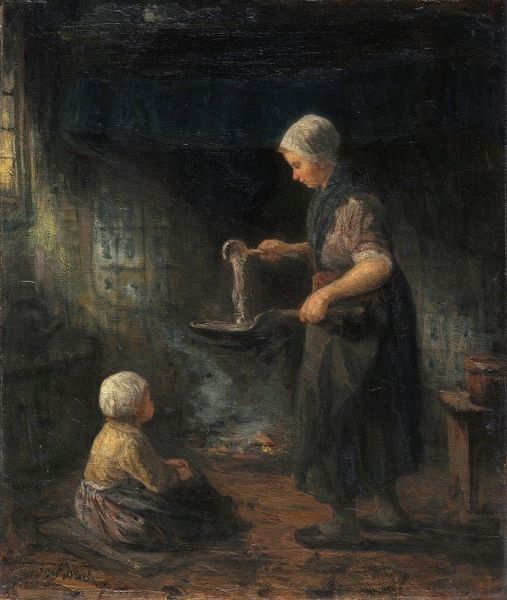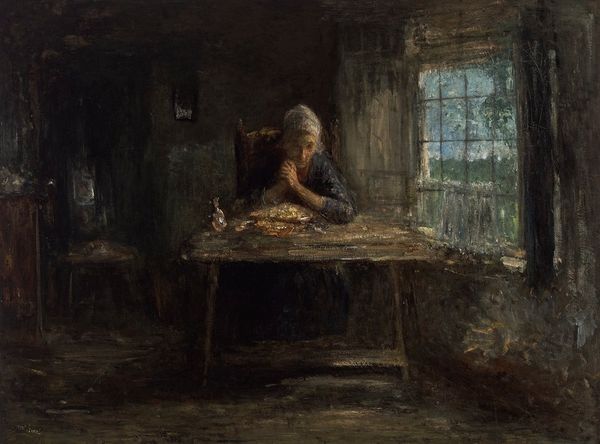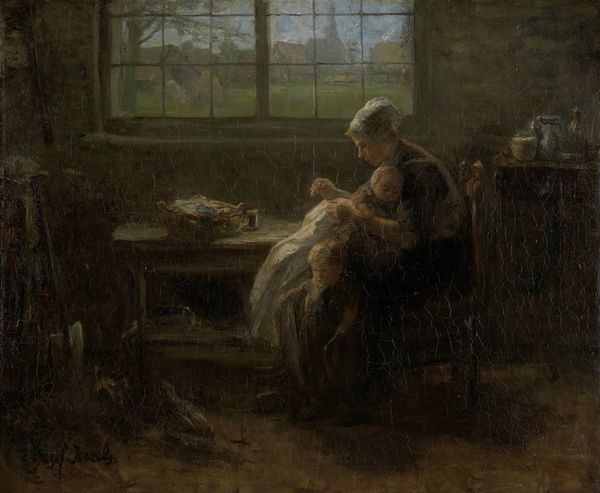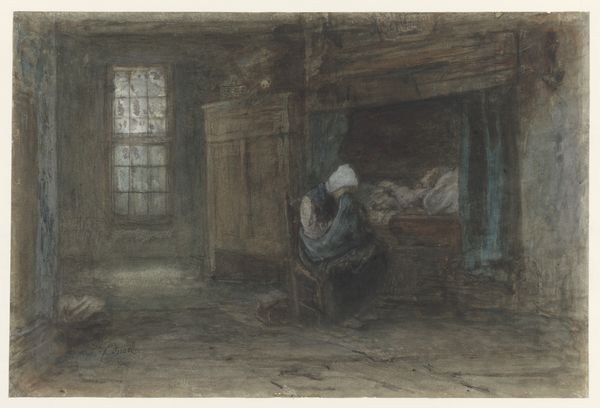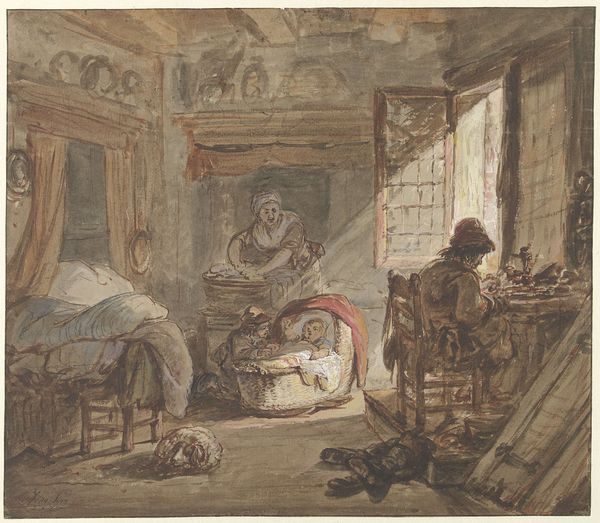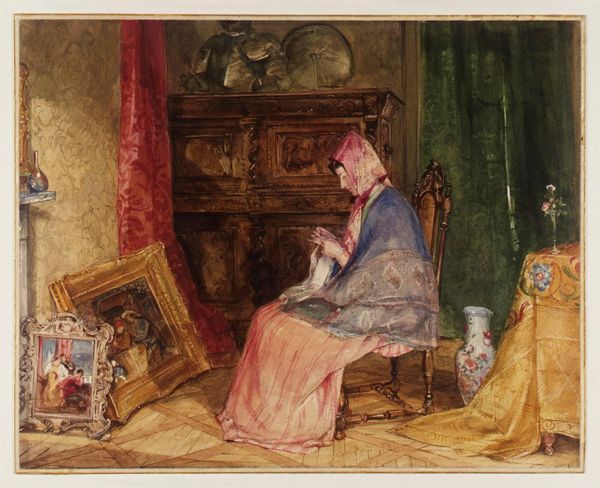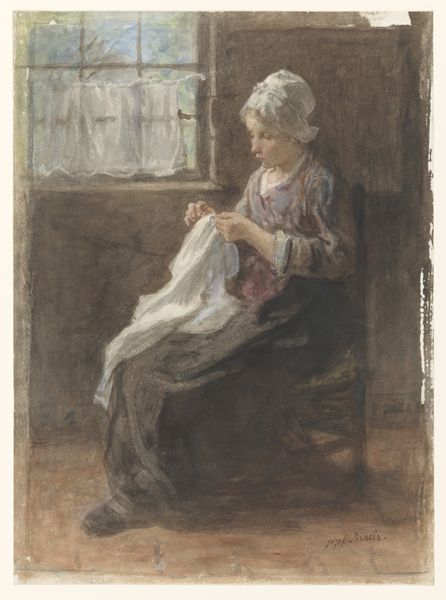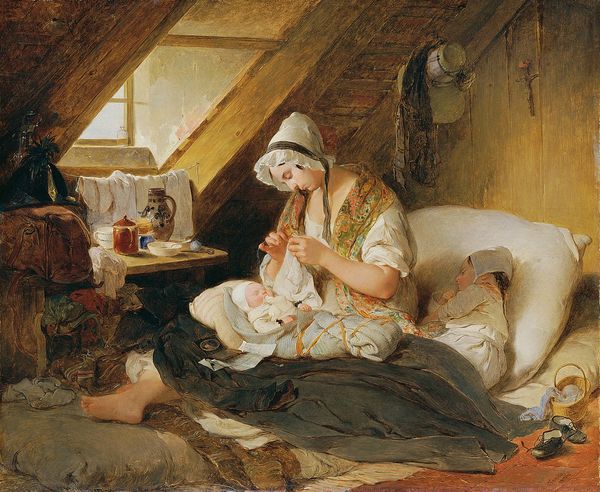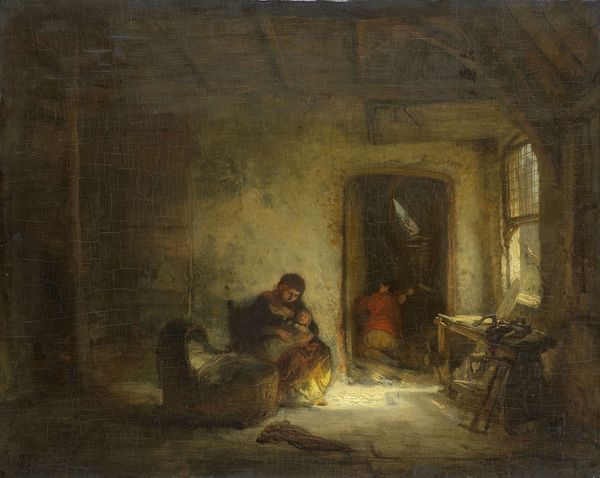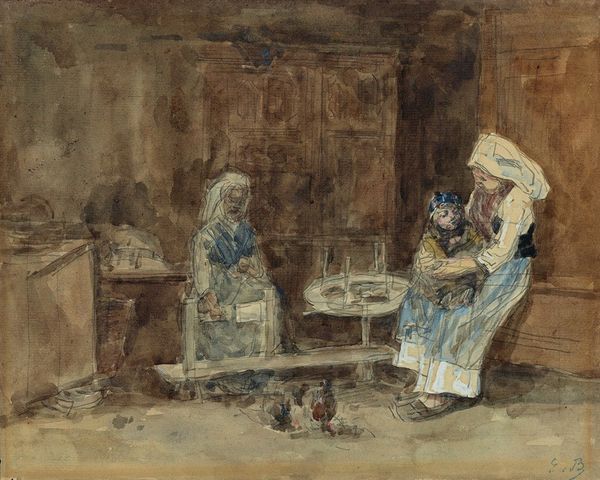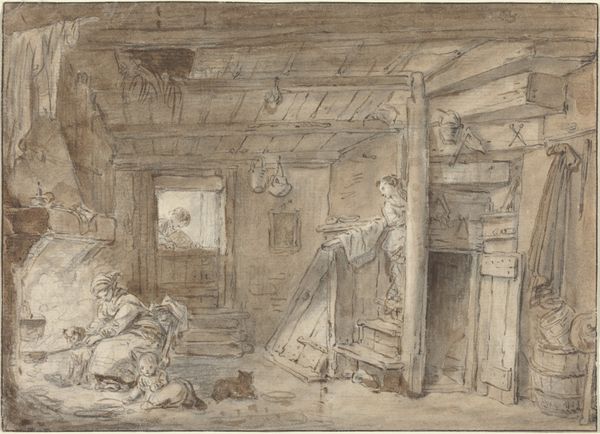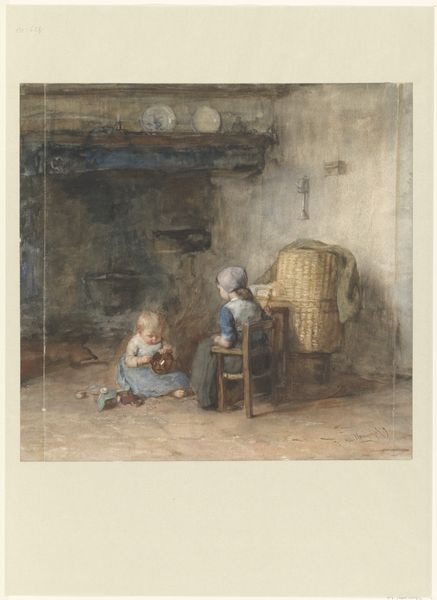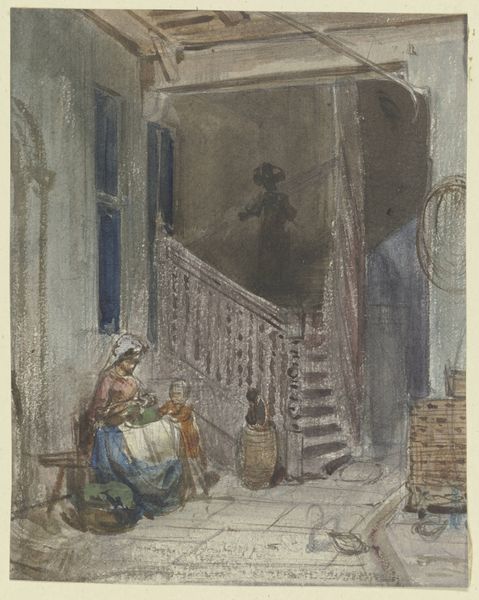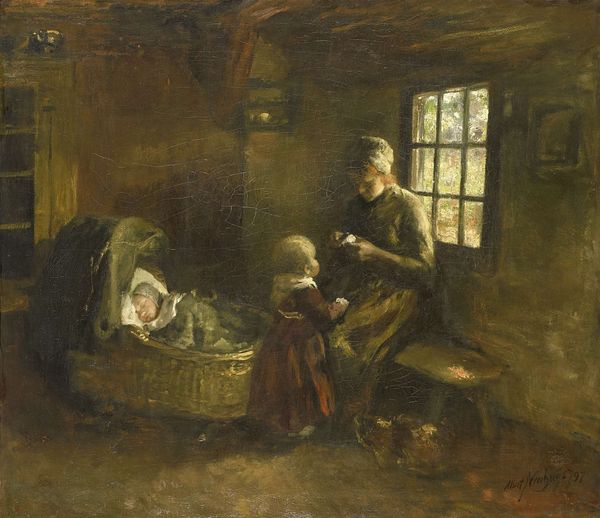
painting, watercolor
#
portrait
#
dutch-golden-age
#
painting
#
oil painting
#
watercolor
#
watercolour bleed
#
genre-painting
#
watercolor
#
realism
Dimensions: height 170 mm, width 210 mm
Copyright: Rijks Museum: Open Domain
Editor: So, this is "Aardappelschilster" or "Potato Peeler," painted by August Allebé in 1867. It appears to be an oil painting, but there is watercolor in it. It depicts a woman peeling potatoes in what seems to be a humble interior. The scene is rather somber, almost melancholic. What strikes you about this work? Curator: What’s interesting is the direct depiction of labor. Notice the focus on the mundane activity, elevating the potato peeler to a subject worthy of art. This reflects a shift in the social value ascribed to labor during this period. We have someone depicting the social conditions. How are the materials contributing to this elevation? Editor: Well, the choice of oil paint mixed with watercolour is curious... It lends a certain transparency to the scene. The limited palette makes it gritty, even dirty. Curator: Precisely. Consider the accessibility of the medium itself, the democratization of artmaking. Is this readily available material for a studio painter in that period or are we going outside the "normal" artistic practice. Are they just documenting, or is it also changing what and how art could be. Is there something revolutionary here? Editor: I suppose it challenges the traditional hierarchy of art. It's not a grand historical scene; it’s the quiet labor of an ordinary person. Is it a form of social commentary in the way it normalizes something so common. Curator: Exactly. Allebé is drawing attention to the social and economic realities of everyday life. What about the production itself, that process becoming content of what we should see and how to read art itself? Editor: That is eye-opening! Thinking about art in terms of the process and its implications for the subject matter. Thanks, I had not really looked at it that way. Curator: Considering the materiality and methods encourages questions around representation. Every time it is worth considering materials beyond just a tool, and more as an actual argument, as something doing active work.
Comments
No comments
Be the first to comment and join the conversation on the ultimate creative platform.
